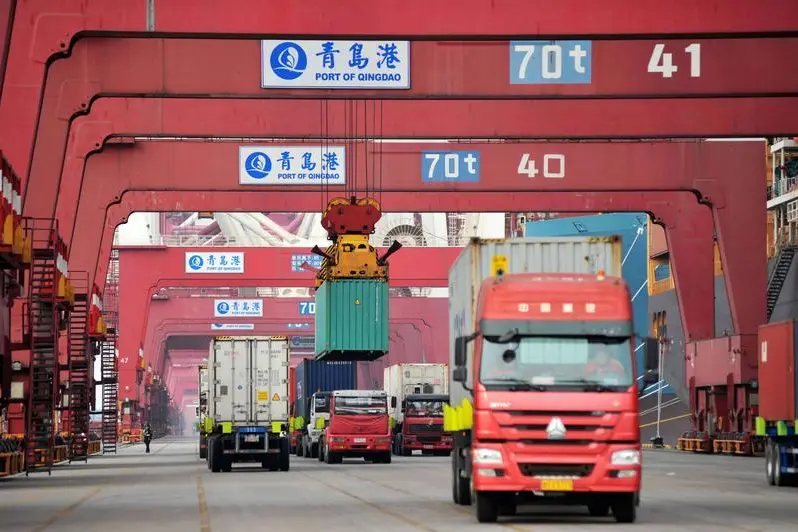PHOTO
WASHINGTON - Tougher reviews for overseas buyers of U.S. firms may be the new stick to beat China with. The Committee on Foreign Investment in the United States gets new powers to vet minority stakes in U.S. tech firms starting next month. That’s reasonable, and the Treasury Department, which oversees it, has a rational approach. The risk is that hardliners in the administration of President Donald Trump could co-opt the process to hurt Beijing once tariffs reach their limit.
The CFIUS process needed an update. Intellectual-property theft cases are rife, and state-backed entities hide behind increasingly sophisticated ownership structures. Starting Nov. 10, non-U.S. investors buying minority stakes in 27 industries, including telecommunications and semiconductors, will be subject to a revamped review. While some past cases have involved China – in September a scientist at drugmaker GlaxoSmithKline pleaded guilty to stealing trade secrets to benefit a Chinese firm – the panels don’t target any one country.
Still, restricting Chinese investment has become part of the Trump administration’s debate on how to respond to trade tensions with Beijing, and CFIUS could become a battleground. White House adviser Peter Navarro this summer wanted to automatically block firms with at least 25 percent Chinese ownership from buying U.S. companies with critical technology. Even Chinese green-card holders and business visas could’ve been targeted.
He lost that fight, mostly because of Treasury Secretary Steven Mnuchin, who presides over CFIUS. Trump opted for an overhauled review process, which both political parties support, while separately levying tariffs on Chinese goods. But before long, those tariffs may have been rolled out to all $500 billion of China’s annual U.S. exports. And while Navarro isn’t part of the CFIUS panel, other hawks like Trade Representative Robert Lighthizer are. A beefed-up CFIUS could be their next weapon of choice.
On Twitter https://twitter.com/GinaChon
CONTEXT NEWS
- The U.S. Treasury Department announced on Oct. 10 that it will launch a pilot program in November that expands the scope of transactions reviewed under the Committee on Foreign Investment in the United States.
- The panel, made up of various U.S. government agencies including the Defense Department, reviews overseas deals for national-security concerns. U.S. President Donald Trump signed legislation expanding CFIUS’s powers in August.
- Investors looking to take a non-controlling interest in a U.S. company involved in what CFIUS considers critical technology will be subject to tougher scrutiny. Foreign investors will have to notify CFIUS of their intentions when announcing a deal.
- The program covers 27 industries including telecommunications and semiconductors, and applies to situations in which an overseas entity will have access to non-public technical information or will be involved in substantial decision making, such as taking a board seat.
- For previous columns by the author, Reuters customers can click on CHON/
- SIGN UP FOR BREAKINGVIEWS EMAIL ALERTS http://bit.ly/BVsubscribe
(Editing by John Foley and Martin Langfield) ((gina.chon@thomsonreuters.com; Reuters Messaging: gina.chon.thomsonreuters.com@reuters.net))





















